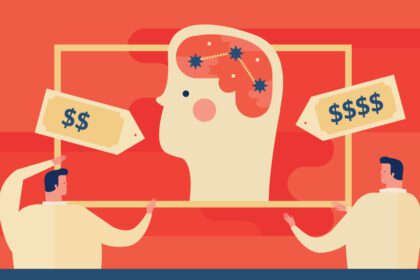Why Confidence Feels Harder Than It Looks
Imposter syndrome is one of entrepreneurship’s quietest challenges. It creeps in during pitches, team meetings, and even moments of success, making accomplished people feel like frauds. The surprising truth? Nearly everyone feels it at some point.
According to a 2023 review by the American Psychological Association, up to 82% of people experience imposter syndrome in their careers. The difference between those who get stuck and those who succeed is knowing how to outsmart it.

Name It, Don’t Hide It
The first trick is recognizing imposter syndrome for what it is: a thought pattern, not reality. By naming it out loud, you take away its hidden power.
Lesson: Doubt is normal denying it only makes it louder.

Keep Evidence of Your Wins
Successful founders often keep a running “win file” emails, metrics, testimonials. When insecurity strikes, evidence beats emotion.
Lesson: Facts silence feelings.

Reframe the Fear
Instead of fearing exposure, flip the script. If you’re worried about not knowing enough, see it as proof that you’re stretching into new territory. Growth always feels uncomfortable.
Lesson: Imposter feelings are signals of progress, not failure.

Borrow Confidence from Others
Mentorship is one of the strongest antidotes. Hearing “I’ve been there too” from someone you admire helps shrink the gap between perception and reality.
Lesson: Confidence compounds faster when it’s shared.

Focus on Service, Not Self
Shifting attention away from “Am I good enough?” to “Who am I helping?” dissolves doubt. When the focus is on service, imposter thoughts fade into the background.
Lesson: Impact matters more than perfection.

Conclusion: Outthinking the Inner Critic
Imposter syndrome isn’t something to eliminate—it’s something to manage. The trick is to reframe it, collect proof of your success, and lean on community when needed.
The takeaway: The most successful people don’t lack self-doubt—they just refuse to let it decide for them.
FAQs
1. What exactly is imposter syndrome?
It’s the persistent feeling of being undeserving of success, despite evidence to the contrary.
2. Who experiences it the most?
Students, professionals, and entrepreneurs—especially during transitions or big wins.
3. Can imposter syndrome be a good thing?
Yes—it often means you’re pushing into growth zones outside your comfort level.
4. What’s the fastest trick to calm it down?
Review your “win file” or talk to a mentor who can offer perspective.
5. Does imposter syndrome ever go away?
Not entirely, but it gets quieter as you build habits and confidence.






